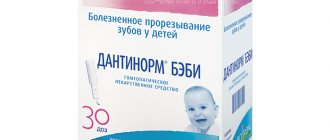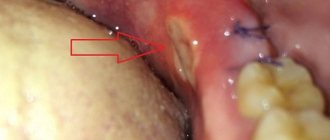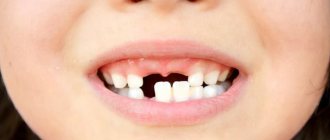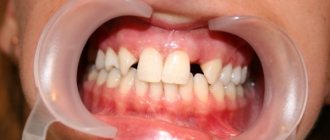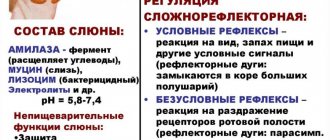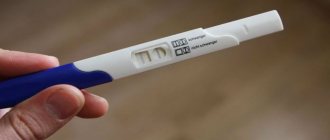Salivation is a natural physiological process that occurs throughout a person’s life. Special glands located in the oral cavity are responsible for it.
They are capable of producing about 2 liters of saliva per day. Sometimes the amount of saliva produced increases sharply, which significantly affects the quality of life. This is especially common in childhood.
Increased salivation in a child can be caused by various reasons, both natural and pathological. To understand this issue, it is necessary to consider what role saliva plays in the life of a child’s body.
Functions of saliva
Firstly, it is involved in the digestion of food, making it softer and helping it move through the esophagus. The enzymes contained in saliva are capable of breaking down starch and fats. Thus, food enters the stomach already partially digested.
Secondly, saliva plays a protective role, preventing the mouth from drying out and having a bactericidal effect. It helps to wash away food debris, and with it bacteria. Saliva neutralizes many acids and alkalis, protecting tooth enamel from their aggressive effects. It is also able to strengthen the enamel, nourishing it with important microelements (fluorine, phosphorus, calcium).
Thirdly, it helps make teething less painful by reducing inflammation in the gums. And finally, in the first months of a baby’s life, saliva has a special viscosity, which makes breastfeeding easier during natural feeding.
Actions to take when spitting up
Sometimes spitting up is easier to prevent than to treat. This does not always apply to cases where regurgitation is not physiological in nature and requires specialist supervision and possible surgical intervention.
So, simple tips to help minimize regurgitation:
- The first time the baby is put to the breast. Try to master this skill while still in the maternity hospital, turning to medical staff for help. You can also seek advice from a breastfeeding specialist. A baby who is properly attached to the breast will swallow less air during feeding, which will reduce the risk of regurgitation and stomach problems in the form of excessive gas formation.
- Get your baby used to lying on his tummy on a hard surface before feeding. This is a kind of massage that also has a beneficial effect on the baby’s stomach, reducing regurgitation and preventing colic and bloating.
- Before feeding, you can do a light massage of the abdomen in a clockwise direction, and light exercises.
- Try not to make your baby scream from hunger, as he will definitely swallow excess air, which will become a likely cause of regurgitation and just a bad mood. If this happens, try to calm the baby down first, and then start feeding.
- If feeding formula from a bottle, make sure it is full. The nipple of the bottle should be filled with milk, not air. Particular attention should be paid to the nipple, namely the hole in the nipple. It must be selected according to the age of the child. The inscription on the box of the bottle will help with this, indicating what age the nipple is designed for. The hole in the nipple regulates the flow of fluid and avoids choking during feeding.
- If during the feeding process the baby stops or begins to arch and cry, you can stop feeding and help the baby burp out excess air. To do this, take him in your arms, position him facing you so that the baby's arms and his head are on your shoulder. The baby will burp and perhaps return to eating again.
- Don't overfeed your baby. It is worth increasing the number of feedings, but reducing the portion. When bottle-feeding, the doctor will calculate the rate of food intake at a time and the total amount per day, based on the age and weight of the baby.
Many pediatricians, gastroenterologists, and surgeons take into account the recommendations of the working group of the European Society of Gastroenterology and Nutrition:
- position treatment
- use of therapeutic nutrition
- medication use
- surgery
- Treatment by position. During feeding, it is important to ensure that the baby is in a position in which the head and upper body are raised above the rest of the body. For this purpose, you can use a pillow or diaper. After feeding, hold the baby in a column to allow excess air to escape. Do not swaddle your baby tightly so as not to squeeze the stomach. After feeding, it is recommended to place the baby on his stomach or right side. But WHO recommends putting your baby to sleep only on his back.
- Medical nutrition. This means more frequent feedings with smaller portions. For children who are bottle-fed, the doctor may recommend the use of a therapeutic antirefluxor formula (AR is its designation on the package). These mixtures have an increased proportion of casein relative to whey proteins, so they are thicker, which prevents their release through the esophagus. Also, these types of foods are often enriched with thickeners, for example, starch or gum - a substance that, under the influence of the acid of the stomach contents, becomes thicker. This substance has the peculiarity of not being dissolved by enzymes, which allows it to remain thick in the stomach longer. It also promotes the active movement of food into the intestines from the stomach.
For more information about artificial feeding, read our article “Artificial feeding: feeding rules and types of formulas.”If the child is breastfed, then, on the recommendation of a doctor, the mixture can be added to the diet and enter the child’s body before milk. The duration of use of this mixture is about 3 months.
- Drug treatment. It is prescribed by a doctor, if the previously indicated methods have not brought results, then it is possible to treat with medications that can significantly improve the contraction of the intestinal walls.
- Surgical intervention. This is an extreme measure when the main cause of regurgitation is pathology.
Now more specifically about each:
Causes of increased salivation in children
Excessive drooling is scientifically called hypersalivation. In children, there are clearly visible age periods when it can occur most intensely.
Important! There is a distinction between true and false hypersalivation.
True hypersalivation is caused by malfunctions of the salivary glands, and false hypersalivation (also called reflex) in childhood is associated with more serious disorders in which swallowing saliva becomes less frequent.
For example, if the sensorimotor arc malfunctions, the interaction between the brain and the oral cavity is difficult. The child's number of spontaneous swallows is reduced, which creates the appearance of profuse drooling. Depending on the age, the causes of increased salivation in children may be different.
Causes of drooling can be physiological and pathological
Baby care
Excessive salivation requires increased care from parents. Mothers stock up on handkerchiefs or soft napkins to wipe the newborn's mouth and chin.
Even with constant wetting of the chin, dripping drool causes redness, peeling, and a rash on the skin around the mouth and on the chin. Knowledgeable mothers advise using baby cream and lubricating irritated areas several times a day until the skin is restored.
Your doctor will tell you which creams and ointments to relieve irritation on your child’s skin. You need to lubricate delicate skin with the prescribed products very carefully, in a thin layer, so as not to cause even more irritation.
Newborn period
In newborn babies, salivation is normally absent due to the underdevelopment of the salivary gland apparatus. However, often a mother may notice how, in the first hours of a child’s life, a colorless liquid, very similar to saliva, is actively secreted from his mouth.
Most often, this is how amniotic fluid comes out, which the baby managed to swallow while passing through the birth canal. Normally, this phenomenon should stop a few hours after birth. If drooling continues longer, it is better to inform your pediatrician (neonatologist) about this in order to exclude serious health problems.
Everything goes as usual
If a two-month-old baby is drooling, then parents have no choice but to be glad that their child’s development is progressing at its own pace. The production of such a secret is very important for the coordinated functioning of all body systems. This is explained by the fact that saliva contains enzymes that break down the starch contained in milk into sugars. This facilitates the processes of digestion and absorption of food.
In fact, little secret stands out. It’s just that the baby doesn’t yet know how to swallow the excess - so it seems like streams are flowing. True, sometimes a lot of fluid is actually released - and then it is worth determining why this is happening.
Drooling at 2–3 months
At the age of about 2 months, a baby may experience profuse salivation, caused by the fact that the salivary glands finally begin to work at full capacity. It is at this age that a child may need his first bib to protect his clothes from getting wet.
The mother also needs to very carefully monitor the condition of the child’s skin, especially the area around the lips and chin. Excessive saliva can irritate baby's delicate skin. To prevent this from happening, it is recommended to lubricate the area around the mouth with baby cream or Vaseline.
Inflammation of the submandibular salivary gland
Closer to 3 months, children become active explorers of the world around them and taste everything. They put fingers, toys and any other objects at hand into their mouths.
The baby's body becomes acquainted with new microflora, which leads to increased secretion of saliva, which performs a protective function. At this age, increased saliva production can also occur against the background of an acute respiratory disease.
Breathing through the nose becomes difficult, and the child has to breathe through the mouth. This causes the nasopharynx to dry out and reflexively release a larger amount of saliva than usual, which moisturizes the air and disinfects it.
Is fist sucking harmful?
Often parents try to wean their child off this habit because they are concerned about his bite and the quality of his future teeth. Some displacement of the teeth is indeed possible if the child chews his fist, fingers and other objects very enthusiastically. But this only affects baby teeth and does not affect the molars.
Applying mustard, pepper and other tasteless substances to your fingers or fist is not the best idea, as it will cause stress and will not help wean your child off the habit. It is better to just leave the child alone and let him do what his body requires.
22.11.2017
- Share:
Teething period
Teething usually begins around 6 months of age. The child becomes whiny and irritable. The process of tooth extraction is accompanied by pain and the formation of wounds on the gums. They can greatly disturb the baby, bringing him a lot of suffering.
Salivation helps make pain less intense: saliva has an anti-inflammatory and calming effect. Teething is greatly extended over time and sometimes lasts up to 2 (and even 3) years.
Important! Increased salivation up to 2 years of age is most often caused by natural causes and is physiological.
What is regurgitation?
Regurgitation in infants is considered to be the spontaneous release of a small amount of just eaten food (milk or formula) into the baby’s mouth from the stomach.
Content:
1. Types of regurgitation |
00:56 (in video) 2. Physiological causes of regurgitation | 01:40 (in video) 3. Functional causes of regurgitation | 02:43 (in video) 4. Permissible frequency of regurgitation 05:13 (in video) 5. Until what age can regurgitation continue | 05:47 (in video) 6. Is it necessary to feed the baby after spitting up | 06:23 (in video) 7. Actions when spitting up | 07:11 (in video) 8. Congenital pathologies of the gastrointestinal tract, as a cause of regurgitation 9. Actions to prevent regurgitation Online consultation with a pediatrician (Breastfeeding Specialist)
Online consultation
During the consultation, you will be able to voice your problem, the doctor will clarify the situation, interpret the tests, answer your questions and give the necessary recommendations.
Increased salivation after 5 years
If a symptom bothers a child at an older age, after 5 years, then this may be a cause for concern on the part of the parents. There are a number of reasons why saliva is produced in large quantities:
- inflammation in the oral cavity (stomatitis, gingivitis, candidiasis);
- infections of the upper respiratory tract and nasopharynx (for example, with adenoids, copious amounts of saliva are produced at night and prevent the baby from sleeping);
- disturbances in the gastrointestinal tract (gastritis, duodenitis, pancreatitis);
- helminthic infestations;
- poisoning with drugs, as well as toxic substances and household chemicals (a life-threatening condition - requires immediate medical attention);
- diseases of the nervous system (especially with damage to the central nervous system, some forms of cerebral palsy, congenital malformations).
If there is increased drooling of any etiology, it is best to show the child to a doctor. Only he will be able to determine the true cause of the symptom and, if necessary, prescribe additional examinations.

